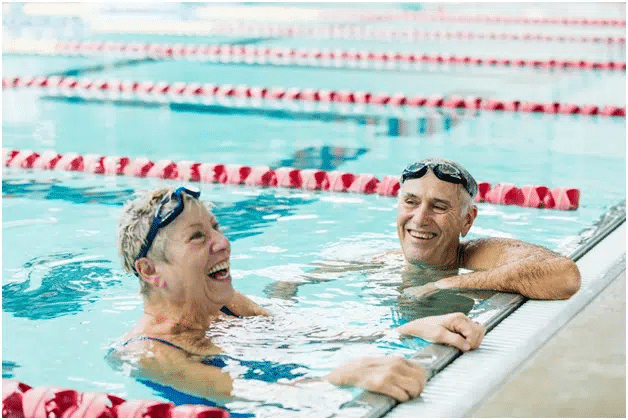As a swimmer, you enjoy being in the water. When you were younger, everyone said you were part fish because you loved to swim so much the pool was your second home. The water seems a bit…louder… than normal today. And then you realize your oversight: you went into the pool with your hearing aid in. And you don’t know if it’s waterproof or not.
In most cases, you’re right to be a little worried. Normally, contemporary hearing aids are resistant to water to some degree. But being resistant to water is not the same as actually being waterproof.
Water resistance ratings and hearing aids
Keeping your hearing aids dry and clean is the best way to keep them in good working order. But for most hearing aids, it won’t be a big deal if you get a little water on them. It all depends on something known as an IP rating–that’s the officially designated water resistance number.
Here’s how the IP rating works: every device is assigned a two-digit number. The device’s resistance to dust, sand, and other kinds of dry erosion is delineated by the first digit.
The second number (and the one we’re really considering here) signifies how resistant your hearing aid is to water. The device will last longer under water the higher this number is. So if a device has a rating of IP87 it will have very strong resistance to dry erosion and will be ok under water for about a half hour.
Some modern hearing aids can be really water-resistant. But there aren’t any hearing aids presently available that are entirely waterproof.
Is water resistance worthwhile?
The sophisticated electronics inside of your hearing aid case aren’t going to do well with water. Ordinarily, you’ll want to remove your hearing aids before you go for a swim or hop into the shower or depending on the IP rating, go outside in excessively humid weather. No amount of water resistance will help if you drop your hearing aids in the deep end of a swimming pool, but there are some scenarios in which a high IP rating will definitely be to your advantage:
- If you sweat significantly, whether at rest or when exercising (sweat, after all, is a kind of water)
- If you live in a relatively humid, rainy, or wet environment
- You have a proclivity for water sports (such as boating or fishing); the spray from the boat might call for high IP rated hearing aids
- There have been occasions when you’ve forgotten to take your hearing aid out before going into the rain or shower
This is surely not a complete list. It’ll be up to you and your hearing specialist to consider your daily life and decide just what sort of water resistance is strong enough for your life.
Your hearing aids need to be taken care of
Your hearing aid is not maintenance-free just because it’s resistant to water. You will need to keep your hearing aids clean and dry.
In some cases, that might mean investing in a dehumidifier. But in most situations, a clean dry storage place will work fine (depending on where you live). And it will be necessary to completely clean and remove any residue left behind by some moistures including sweat.
If your hearing aids get wet, what should you do?
Just because waterproof hearing aids don’t exist doesn’t mean you need to panic if your hearing aid gets wet. Mostly because panicking never improves the situation anyway so it’s best to stay calm. But you need to give your hearing aids enough time to dry out completely and if they have a low IP rating, we can help you identify if there is any damage.
How much damage your hearing aid has sustained can be approximated based on the IP rating. At least, try not to forget to remove your hearing aids before you go swimming. It’s best to keep your hearing aids as dry as you can.



